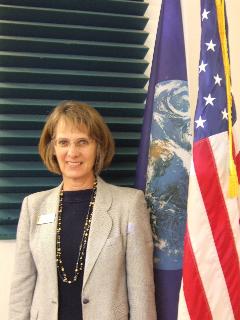July
Congratulations on becoming Cittaslow!


Cittaslow Certifies Sebastopol
By Shepherd Bliss
"You are now Cittaslow," an enthusiastic Virginia Hubbell announced on behalf of the decade-old international group of cities at this week's Sebastopol City Council. "This certificate traveled 6000 miles from South Korea to get here," Sonoma City Council member Laurie Gallian added. She represented the U.S. at the June assembly of representatives of 135 cities in twenty countries.
"We have a fine future ahead of us as we decide how to define ourselves as a Cittaslow town," Mayor Sarah Gurney said in accepting the award. "City Manager Jack Griffin and I learned more about our community as we made the application." Mayor Gurney later added, "I think Cittaslow will serve us well as positive guidance."
To be certified a city takes an examination based on 54 criteria in six major areas: environmental policy, infrastructure policy, quality technology, local production and biodiversity, sustainable hospitality, and citizen awareness and social inclusion.
Fairfax and Sebastopol are only the second and third U.S. cities to qualify, after Sonoma. They were certified, along with 10 other new cities throughout the world, at the recent international gathering. The three North Bay towns now constitute the American network, which provides a foundation on which other cities can build.
"These three towns can work together," Hubbell noted. "We are the ground breakers. It took us five years in Sonoma to get to this point. We seek to maintain our town's own true identity."
"Sonoma has benefited from this award by lots of press and increased visibility," Hubbell explained in an interview. "It brings a community together and connects people to celebrate their values," she added.
Cittaslow, which is pronounced cheet AH slow, describes itself as an "international network of cities where living is easy." It asserts that "slow is better" and advocates "quality not quantity."
"The economic and financial system is in the doldrums," the group's publicity asserts. It asserts that "quality is impossible without sustainability." The Cittaslow Manifesto says the group seeks "cities animated by people eager to rediscover the best of the past...where people still live in harmony...enjoying authentic products respectful of health and local flavours, and the spontaneity of ancient custom."
The mayors of four Italian towns, initiated by Paolo Saturnini of Greve, founded Cittaslow in l999. "In February or March we hope to have Cittaslow International president Gian Luca Marconi and director Pier Giorgio Oliveti travel here to meet with us," Mayor Gurney announced.
Sonoma's Cittaslow publicity describes this town as "creative, catalytic, sustainable," with the goal of "preserving Sonoma's quality of life...for the long term." Its brochure notes, "This small place near large, beautiful cities said 'no' to crazy-fast." Instead, it opted for "thoughtful, logical growth," which means "chickens in backyards, cattle on ranches, dairy cows in fields, and olives, figs, grapes, lettuce and tomatoes, walnuts-and more-in the ground."
"Sonoma is in the process of launching a pollinator stewards program," Hubbell explained. "We need to deal with the bee colony collapse problem. We need to focus on pollination so local food production can be guaranteed."
Now it is up to Sebastopol to define itself in its own unique and particular way as a Cittaslow town.
Gallian presented an inspiring slide show from her recent trip to South Korea. It documented a slow walking town that preserves its history and develops transportation that is alternative to car-based mobility. Her images served to help Sebastopudlians understand localism within an international context. Instead of a competitive world in conflict, Cittaslow helps lay the foundation for understanding and cooperation between cities and their residents, one city at a time.
By visiting other Cittaslow sites and assessing applications, Gallian explained that she has learned more about her own city and the values that its residents share with similar other cities around the globe.
More information at www.cittaslow.net and frominfo@cittaslowsonomavalley.org.
(Dr. Shepherd Bliss owns an organic farm in Sebastopol and will be co-teaching Sonoma State University's "Identity and Global Challenges" course for the third year in the fall. He can be reached at sb3@pon.net.)